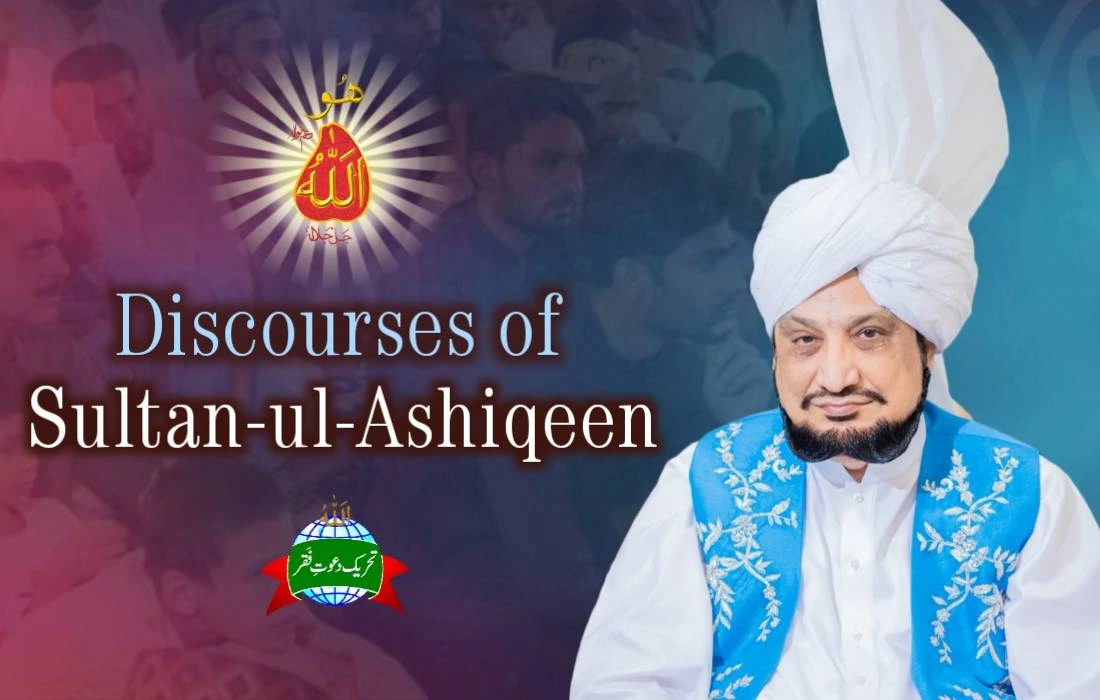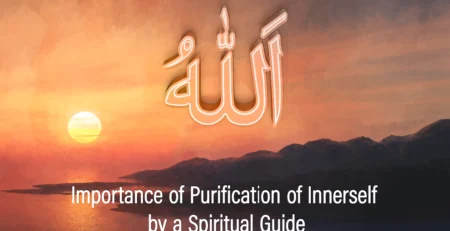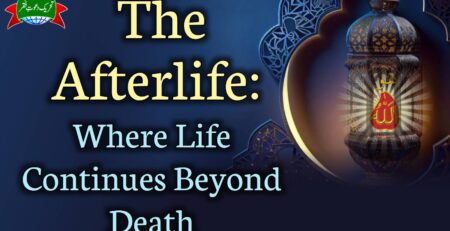Discourses of Sultan-ul-Ashiqeen
A sacred journey documenting the words of Sultan-ul-Ashiqeen
In the year 2023, a profound realisation illumined my spiritual path that the Divine and celestial wisdom imparted by my spiritual guide, Sultan-ul-Ashiqeen, must be etched into the annals of time yet I awaited an opportune moment to seek his permission. To my astonishment, during a visit to Lahore, he himself asked me to pen his words for I will need them. This affirmation lifted my spirits as my aspirations began to manifest. From that auspicious moment, I recorded every utterance by Sultan-ul-Ashiqeen. He bestowed me with a special favour, engaging in long enlightening conversations whenever I sought his wisdom. Due to pressing official duties, I regret the times when I could not visit him missing many profound discourses.
During this undertaking, I tried my utmost best to preserve his words verbatim for the discourses of Sufis are imbued with wisdom beyond the reach of mere words. While I have strived to capture Sultan-ul-Ashiqeen’s words with utmost care, it is undeniable that the true essence of his discourses and the aura transcends the written word. In those sacred moments, a mystical aura engulfs the disciples transporting them to realm beyond where they witness everything unfolding before their eyes. When the gathering concludes, and it is asked from the disciples how they felt, they all chant the same words that they found the answers to their unspoken questions.
This series of the article ‘discourses of Sultan-ul-Ashiqeen’ is an archive of his conversations, speeches and writings. This cosmic repository of wisdom is a realm only explored by the Mystics. Surprisingly even for Mystics, each word or sentence is like a petal, if plucked on complete understanding reveals countless others beneath it waiting to be explored. The meaning unveil itself according to the spiritual limit of the listener and can be exemplified with the quote of Izz al-Din Abdul Aziz ibn Abd al-Salam who was initially against the ways of Sufis. When he visited the gathering of his soon to be spiritual guide for the very first time, on listening to his words, Izz Al-Din exclaimed, “These words have never been revealed before.”
For those seeking to traverse the Divine path of Faqr, the discourses of Sultan-ul-Ashiqeen offer an indispensable guide. These discourses hold the same status as that of Ism al-Azam (the greatest name of Allah) for a Sufi. As I delved into the text, I experienced the Divine favour descend. Even today when I turn its pages, my troubles fade away, bringing solace and peace. As I have discussed before that these discourses are a beacon of light for those who traverse Faqr. Surprisingly, a beginner and a Mystic both derive light from them. The Sufi conversations of Sultan-ul-Ashiqeen unknot the complexities of this spiritual path.
I also took the help of Sultan-ul-Ashiqeen’s disciples especially who were given the turban by himself and are appointed as Khalifa. I am also writing those of my spiritual guide’s words which were recorded by them in various gatherings, especially when I was not in Lahore. I have also incorporated any verbal teachings shared with me personally.
It is my prayer that my spiritual guide accepts this humble effort and bestows his special favour forgiving me for the unintentional mistakes as he is compassionate and kind. Ameen!
Repentance
Repenting humbly is the gateway to Divine mercy, as Sultan-ul-Ashiqeen profoundly remarks:
Allah is indifferent and it is we who must weep begging for forgiveness. In the revered book Ar-Risala tul-Ghausia, a poignant conversation unfolds between Allah and Ghawth al-Azam, he asked Allah, “O Allah! Which repentance is most dear to you.” Allah responded, “Repentance of the innocent (soul).”
The Holy Prophet (pbuh) sought forgiveness seventy times every day, we too must beg from Allah humbly. He is indifferent and may or may not bestow. While asking for His union or anything one must cry because with stubbornness and arrogance nothing is gained but with humility the gates of Allah’s grace swing open.
It is remarked in Akhbar al-Akhyar, a disciple must seek forgiveness all the time as a sin is not written when one is repenting. It is not a licence to sin rather an invitation to humility. As the great spiritual guides counsel the disciples to repent before nightfall as those sins which have not been penned due to Divine mercy are forgiven. A disciple is considered firm in repentance when the angel on the left has not written any sin for twenty years
(Akhbar al-Akhyar p. 6)
A Persian quatrain puts it:
اکنون باید اے خفت بیدار بود
جو مرگ اندر آرد ز خواست چہ سود
تو پیش از عقوبت در عضو کوب
کہ سودے ندارد فغاں زیر چوب
Explanation: Awake, O slumbering soul! What purpose the sleep serves you if it is broken by death. Hasten and knock on the door of repentance before punishment binds you. What good is repentance if it is sought when punishment is being inflicted.
Sultan-ul-Ashiqeen continued, expounding with exquisite eloquence; Humanity weak and foolish fails to submit before the Mighty Allah.
Allah say:
وَ خُلِقَ الۡاِنۡسَانُ ضَعِیۡفًا
Meaning: And man has been created weak.
(Quran 4: 28)
Yet weak dares to be disobedient to the Powerful.
Who should seek forgiveness?
A disciple questioned Sultan-ul-Ashiqeen, “Who should seek forgiveness?” To which he responded beginning with the following verse:
وَ تُوۡبُوۡۤا اِلَی اللّٰہِ جَمِیۡعًا اَیُّہَ الۡمُؤۡمِنُوۡنَ
Meaning: And turn to Allah, all of you, in repentance, O believers.
(Quran 64:31)
Repentance is thus ordained for all. If the Holy Prophet, the paragon of virtue, sought repentance daily, then how can we be exempt. Given our inherent imperfection, all must seek repentance for transgressions against Divine laws. As the Holy Prophet wisely stated:
- All men commit mistakes and among them the best are the ones who repent.
Abdullah ibn Abbas always concluded the gathering of exegesis of Quran with repentance. He quotes: “When man errs, he must hurriedly seek repentance.”
Allah says:
فَاسۡتَبِقُوا الۡخَیۡرٰتِ
Meaning: So, move forward to take the lead towards the pious acts.
(Quran 2: 148)
- Hasan of Basra during pilgrimage to Makkah stayed at Masjid al-Haram to worship all night. He witnessed that a pious person would visit daily at night and stayed till morning in front of the door of Kaaba, praying devotedly to Allah, “O Allah, I am your humble slave, forgive me.Intrigued, one night, he hurried after the devout. Upon inquiry, “Who was he?” The man in turn asked him, “Who was he?” He answered that he is Hasan of Basra. The devout replied, “My name is Hasan too and I am the grandson of the Holy Prophet.” Hasan of Basra astonishingly stated that even though he was pardoned by Allah yet he chose to pray devotedly. Hasan ibn Ali replied, “Hasan of Basra, should I not be grateful to Allah? Have you not heard that the Holy Prophet prayed all night till his feet hurt. He was asked that he is innocent (and epitome of virtue) yet chose to worship devotedly. To which the Prophet replied, ‘Should I not be grateful to Allah’.”
Sultan-ul-Ashiqeen continued the conversation stating:
While Satan, cursed for his defiance and refusal to repent, was cast out, Adam found Divine favour through acceptance of his wrongdoing and sincere remorse. Kahmas reported that Divine decree descended on Prophet David, “O David! Convey to the children of Israel that how did they come to know (or falsely claim) that they have been pardoned for the sins, due to which (this ignorance) they no longer repent. ‘I swear of My Honour and Majesty, I will reckon every sinner on the day of judgement’.”
Repentance of old age and youth
Sultan-ul-Ashiqeen was presented with a question about the efficacy of repentance in old age and youth. He answered:
When a youth visited Ghawth al-Azam Shaikh Abdul Qadir Jilani for repentance, he would remark, “You came only when summoned, you did not (safely) return from a perilous journey until you were (helped with Divine favour) to return, I did not leave you as you held onto me. I did not forget you as you did not forget me. You upheld your honour and I protected you. It is I who moved you for our proximity and I came close to you for you held affection.”
When elderly sought repentance, Shaikh Abdul Qadir Jilani would say, “O man! You sinned throughout your life making the self (nafs) insolent. You left me since childhood and I kept you incapable (to approach me), I gave you enough time and you stayed away in youth, I gave you time in prime of life and you stayed away, you envied me in old age hence I kept you away from me. If you have come now, I accept you.”
Never despair of Allah’s mercy
Then Sultan-ul-Ashiqeen said:
- Never despair of Allah’s mercy, regardless of the age. Satan despaired, but not Prophet Adam.
Ibn Arabi exhorts in Al-Futuhat al-Makkiyya, “Have a positive presumption of Allah and avoid doubt. You do not know whether this will be your last breath. If you die, then you should meet Lord in a good presumption and not in a state of doubt. You never know which is your last breath. Do not heed a person who says that mistrusting is not huge because for a Mystic it is detrimental as he is always with Allah. In good presumption lies knowledge and benefit and it is doing the right thing. Have faith in Allah and on His saying:
وَ نُنۡشِئَکُمۡ فِیۡ مَا لَا تَعۡلَمُوۡن
Meaning: And make you grow into a form which you do not know.
(Quran 56: 61)
It can be that the breath which you perceive will continue are stopped and signs of death start while you are in a state of distrust in your Lord and meet Him as such. As a Qudsi Hadith states, “I am as my slave thinks of Me hence, he should think well.”
Allah has not fixed any time for it therefore your perception of Him should be like faith because he is the Forgiver as He says:
قُلۡ یٰعِبَادِیَ الَّذِیۡنَ اَسۡرَفُوۡا عَلٰۤی اَنۡفُسِہِمۡ لَا تَقۡنَطُوۡا مِنۡ رَّحۡمَۃِ اللّٰہِ
Meaning: Say: ‘O servants of Mine who have wronged their souls, do not lose hope of Allah’s mercy.
(Quran 39: 53)
Allah has stopped you and as He has stopped you, let go of it. As He Himself has said it therefore it cannot be annulled. If it could be annulled, it is a lie and lies are not associated with our Lord as He says:
اِنَّ اللّٰہَ یَغۡفِرُ الذُّنُوۡبَ جَمِیۡعًا
Meaning: Assuredly, Allah forgives all sins (and excesses).
(Quran 39: 53)
Allah has not particularised a sin in this verse rather commanded in totality stating two of His attributes, Most Forgiving and Ever Merciful. His Compassion exceeds His wrath. Likewise, He has said, “Those who have wronged.” Here by wronged he has accumulated everyone then connected His creation with Himself, after-all He is the Creator like Allah quoted the words of Prophet Jesus in the Holy Quran:
اِنۡ تُعَذِّبۡہُمۡ فَاِنَّہُمۡ عِبَادُکَ
Meaning: If You torment them, they are only Your servants.
(Quran 5: 118)
He linked mankind with Allah and it is enough for them.
Sultan-ul-Ashiqeen continued, “Allah cherishes mercy above justice.”
Who will testify man’s sins?
The conversation took a surprising turn that the place where man sinned will testify on the day of reckoning. Sultan-ul-Ashiqeen while quoting Ibn Arabi said:
The conversation took a surprising turn that the place where man sinned will testify on the day of reckoning. Sultan-ul-Ashiqeen while quoting Ibn Arabi said:
- If you disobeyed Allah, do not leave that place unless you worship or perform a virtuous deed hence if it testifies against you then it has something to say in your favour as well. Therefore, leave that place after performing a good deed. If you have sinned in certain clothes then follow the same that has been said i.e., worship in that attire. When a part of your body separates e.g., trimming moustache, removing pubic hair, cutting nails, trimming hair or while removing dirt, be engrossed in purification and the invocation of Allah because it will be asked how it left the body? The least that you could do is pray Allah for forgiveness because it is like offering an obligatory act of worship.
It is in Quran:
وَ قَالَ رَبُّکُمُ ادۡعُوۡنِیۡۤ اَسۡتَجِبۡ لَکُمۡ
Meaning: And your Lord has said: ‘Always pray to Me; I shall certainly grant your prayer.
(Quran 40: 60)
He ordered you to pray to Him and said in the same verse:
اِنَّ الَّذِیۡنَ یَسۡتَکۡبِرُوۡنَ عَنۡ عِبَادَتِیۡ
Meaning: Those who turn away from My worship in defiance.
(Quran 40: 60)
Here ‘worship’ means ‘to pray’ i.e., those who defy Him instead of being humble and submissive. He called praying as worship and worship is with humility:
سَیَدۡخُلُوۡنَ جَہَنَّمَ دٰخِرِیۡنَ
Meaning: (Such people) will soon enter Hell disgraced.
(Quran 40: 60)
They are wicked and disgraced but if they chose those acts as ordained by Allah then He will reward them by an honourable entry in paradise.
What is sincere repentance?
Someone questioned Sultan-ul-Ashiqeen, “What is sincere repentance?”
He replied quoting a verse from the Holy Quran:
یٰۤاَیُّہَا الَّذِیۡنَ اٰمَنُوۡا تُوۡبُوۡۤا اِلَی اللّٰہِ تَوۡبَۃً نَّصُوۡحًا
Meaning: O believers! Turn towards Allah’s presence in perfect and most sincere repentance.
(Quran 66:8)
Umar ibn Khattab said of sincere repentance, “True repentance is just like milk that cannot return to udder. Similarly, a sincere repentance does not revert to sin.”
Indeed, Allah loves a believer in trial who repents.
Is forgiveness guaranteed after repentance?
Another query reached Sultan-ul-Ashiqeen, “Is forgiveness guaranteed after repentance?”
He answered quoting a verse from the Quran:
وَ ہُوَ الَّذِیۡ یَقۡبَلُ التَّوۡبَۃَ عَنۡ عِبَادِہٖ
Meaning: And He is the One Who accepts His servants’ repentance.
(Quran 42:25)
Allah forgives but before the angel of death is witnessed.
وَ لَیۡسَتِ التَّوۡبَۃُ لِلَّذِیۡنَ یَعۡمَلُوۡنَ السَّیِّاٰتِ ۚ حَتّٰۤی اِذَا حَضَرَ اَحَدَہُمُ الۡمَوۡتُ قَالَ اِنِّیۡ تُبۡتُ الۡـٰٔنَ وَ لَا الَّذِیۡنَ یَمُوۡتُوۡنَ وَ ہُمۡ کُفَّارٌ ؕ اُولٰٓئِکَ اَعۡتَدۡنَا لَہُمۡ عَذَابًا اَلِیۡمًا
Meaning: But repentance is not (accepted) of the people who persist in sinful acts until death overtakes one of them, (then) he says: ‘Now I repent.’ Nor is repentance (of any avail) to those who die as disbelievers. We have prepared grievous torment for them.
(Quran 4:18)
اِنَّمَا التَّوۡبَۃُ عَلَی اللّٰہِ لِلَّذِیۡنَ یَعۡمَلُوۡنَ السُّوۡٓءَ بِجَہَالَۃٍ ثُمَّ یَتُوۡبُوۡنَ مِنۡ قَرِیۡبٍ فَاُولٰٓئِکَ یَتُوۡبُ اللّٰہُ عَلَیۡہِمۡ ؕ وَ کَانَ اللّٰہُ عَلِیۡمًا حَکِیۡمًا
Meaning: Allah has only promised to accept the repentance of those who commit evil deeds due to ignorance and then repent soon after. So, Allah will turn to such people with His mercy and Allah is All-Knowing, Most Wise.
(Quran 4:17)
Abdullah ibn Abbas says, “The word ‘soon’ in ‘then repent soon after’ signifies the limited time available for repentance between sinning and witnessing the angel of death.”
Abdullah ibn Umar said about repentance that it is vast so that one could benefit from it and then he recited the same verse.
Man’s repentance is accepted in the Divine court till the moment he sees the angel of death.
Bakr ibn Abdullah Al-Muzanisaid, “Till meeting with the angel of death the door to repentance stays open but once he witnesses it then there is no way to it.”
(Lataif al-Maarif)
Sayyidna Ibrahim al-Nakha’i said, “The time of repentance is till the signs of death start appearing.”
The Prophet said, “Allah will accept repentance till the day sun will rise from the west.”
(Muslim 6861)
Whose repentance is not acceptance?
Sultan-ul-Ashiqeen was posed another query, “Are there other people whose repentance is not accepted?”
He answered:
Those whose repentance is not accepted are:
- Calling apostate to a reciter of shahada i.e. a Muslim
- Misguiding those who are on the straight path
- Committing sins intentionally
A devotee regretting a lifetime of delay sought repentance before Sultan-ul-Ashiqeen whom he reassured, “True repentance is accepted before death’s arrival. How strange it is that man feels God near when seeking forgiveness, yet distant when he falls into sin.”
MISCELLANEOUS
Is it a torment for someone who is going through a spiritual trial but does not know?
Somebody inquired Sultan-ul-Ashiqeen, “Is it a torment for someone who is going through a spiritual trial but does not know?”
He answered, “Yes! A seeker is being tested all the time. If he is a true seeker then he stays in trials.”
Why does Allah not give enough sustenance to all so no one stays poor?
Another person posed a question, “Why does Allah not give enough sustenance to all so no one stays poor?”
Sultan-ul-Ashiqeen answered by quoting from the Quran:
وَ لَوۡ بَسَطَ اللّٰہُ الرِّزۡقَ لِعِبَادِہٖ لَبَغَوۡا فِی الۡاَرۡضِ
Meaning: And if Allah were to expand sustenance for all His servants abundantly, they would surely transgress and revolt in the earth.
(Quran 42:27)
This verse applies not only to physical sustenance but spiritual as well as is said in the Quran:
فَضَّلۡنَا بَعۡضَہُمۡ عَلٰی بَعۡضٍ
Meaning: We have exalted some above others.
(Quran 2:253)
Can shrine caretaking seat be proven from the Quran?
Someone asked, “Can shrine caretaking seat be proven from the Quran?”
Sultan-ul-Ashiqeen answered that Allah says in the Holy Quran:
وَ مَا لَہُمۡ اَلَّا یُعَذِّبَہُمُ اللّٰہُ وَ ہُمۡ یَصُدُّوۡنَ عَنِ الۡمَسۡجِدِ الۡحَرَامِ وَ مَا کَانُوۡۤا اَوۡلِیَآءَہٗ ؕ اِنۡ اَوۡلِیَآؤُہٗۤ اِلَّا الۡمُتَّقُوۡنَ وَ لٰکِنَّ اَکۡثَرَہُمۡ لَا یَعۡلَمُوۡنَ
Meaning: And what might be any other reason that Allah should not punish these (disbelievers of Makkah now after your emigration to Madina), whilst they hinder people from the Sacred Mosque (Kaaba), and they do not deserve to be its guardians (or custodians) as well? Its friends (i.e., guardians) are only the righteous people, but most of them do not know (this truth).
(Quran 8:34)
In this verse, Allah says that the Mystics and the righteous people are the custodians
Who are Nasibi?
A question was raised, “Who are Nasibi?”
Sultan-ul-Ashiqeen answered: Nasibi are those who diminish the greatness of Ali ibn Abi Talib (God forbid) and consider it a matter of faith or religion. Similarly, Rafidi criticise the Companions of the Holy Prophet and deem it as a religious duty.
Treaty between Imam Hasan and Muawiya
He further elaborated: While most focus solely on the financial aspect of the treaty between Iman Hasan and Muawiya, it is crucial to examine the full terms. The financial settlement is merely a part in the agreement. One significant factor leading to this treaty was the desertion of solders from Kufa. Iman Hasan’s critics are motivated by malice and when confronted by a truly knowledgeable person, they retreat in shame.
The ways of people of Kufa
Sultan-ul-Ashiqeen said about people of Kufa that they are double-crossers, they leave at the time of distress. They deceived Ali ibn Abi Talib, Iman Hasan and Imam Husayn.
History is silent
The progeny of Imam Hasan did wonders but they are rarely mentioned in the books of history like those acclaimed Companions who stood by Prophet’s side since the very beginning.
A miracle of word spoken by Ali ibn Abi Talib
During the initial days of his spiritual journey, Maruf al-Karkhi went to Ali al-Rida. He stood as a humble servant by Ali al-Rida’sdoor announcing those who waited to meet him.. Once Haroon ar-Rashid visited. He beseeched Maruf al-Karkhi to intercede with Ali al-Rida requesting a litany as he was afraid of sea voyage. Maruf al-Karkhi went inside the chamber and requested Ali al-Rida who wrote something on a piece of paper. That paper was handed over to Haroon ar-Rashid.
Haroon ar-Rashid boarded a ship. As the storm raged, Haroon unfolded the paper, expecting a holy verse. Yet to his astonishment, it bore only the name of Maruf al-Karkhi. Disappointed, he cast the paper into the raging waters, miraculously the storm subsided. Upon his return, Haroon sought out Maruf al-Karkhi, eager to unravel the mystery. He inquired about his spiritual heights. Maruf al-Kharkhi responded that it is by the grace and favour of Ali al-Rida as he calls his name many times a day due to which his name has been blessed.
The Progeny of the Prophet and their humility
Sultan-ul-Ashiqeen continued:
Once Dawud al-Tai, seeking spiritual guidance, turned to Jafar al-Sadiq, a descendant of the noble Prophet. Yet the revered scholar remained silent. Dawud persisted and pleaded, quoting that it was compulsory upon him to guide as he was from the sacred progeny. Jafar al-Sadiq responded humbly, “I fear the day of judgement when the Prophet may question me, ‘Why did you not follow the path completely’.”
The humility of Jafar al-Sadiq greatly moved Dawud al-Tai who thought to himself that if the sacred progeny feared so much then who was he to be complacent.
Benefit from the silence of the spiritual guide
Sultan-ul-Ashiqeen proceeded with the conversation to another example quoting Mujaddid Alif Sani Ahmad Sirhindi, “Those who do not benefit from the silence of the spiritual guide will not benefit from the words either.”
Sultan-ul-Ashiqeen gave his example that he too has benefited from the silence of his spiritual guide Sultan-ul-Faqr VI Sultan Mohammad Asghar Ali. A spiritual guide alters the inward which has nothing to do with words spoken.
Knowledge
Sultan-ul-Ashiqeen said about knowledge:
The Holy Prophet said, “I am the city of knowledge and Ali is its door.”
(Mustadrak 4637, 4638, 4639)
Ibn Abbas said, “Knowledge consists of ten parts; nine of these were given to Ali ibn Abi Talib and he also shares in the tenth part with the people.”
Allah says:
مَاۤ اُوۡتِیۡتُمۡ مِّنَ الۡعِلۡمِ اِلَّا قَلِیۡلًا
Meaning: You have been given but a very little knowledge.
(Quran 17:85)
As person lacks sufficient knowledge, they should not dismiss the wisdom of the Saints. The notorious fake spiritual guides have tarnished the reputation of the true spiritual guides hence people associate the true men with these charlatans. Allah has fixed the sustenance though earning it legally or illegally remains a matter of personal choice. The fake guides resort to earning sustenance illicitly.
SAINTS OF ALLAH
Who are Sufis?
A devotee in the Divine assembly of Sultan-ul-Ashiqeen inquired, “Who are Sufis?”
Sultan-ul-Ashiqeen eloquently elaborated:
A Hadith states:
تَخَلَّقُوْا بِاَخْلَاقِ اللّٰہ
Meaning: Be attributed with the morals of Allah.
Through piety and devotion, Saints and Sufis discern the true hidden meanings of the Quran.
لَّا یَمَسُّہٗٓ اِلَّا الْمُطَھَّرُوْنَ
Meaning: No one can touch it except the purified ones.
(Quran 56: 79)
A Sufi’s life serves as a beacon, guiding others towards the righteous path.
The Holy Quran states:
لَقَدْ کَانَ فِیْ قَصَصِھِمْ عِبْرَۃٌّ لِاُولِی الْاَلْبَابِ
Meaning: Truly, in their stories there is a lesson of warning for men of understanding.
(Quran 12: 111)
……to be continued
How useful was this post?
Click on a star to rate it!
Average rating 0 / 5. Vote count: 0
No votes so far! Be the first to rate this post.






Comment (1)
Sultan ul Ashiqeen Sultan Mohammad Najib ur Rehman is the perfect Spiritual Guide of this era